DeShankeni expands business by focusing on “responsive production” tailored to the fashion market.
A small-quantity, multi-variety, ultra-short-term production system that responds to changes in the e-commerce environment

Deshankeni Achieves Digital Innovation in Manufacturing by Building a Smart Factory
Samples are delivered within one day, reorders within a week. Chinese manufacturing is evolving into a “responsive production” system, equipped with speed and flexibility to adapt to the e-commerce era.
Dishang Kenny, located in Weihai, Shandong Province, China, is a leading reactive production-based apparel manufacturer. It has maintained partnerships with fashion companies, primarily in Korea and Japan, for nearly 20 years, and its strength lies in its ability to handle the entire process, from initial production to reorders, with speed and flexibility. A mid-sized women’s apparel company, headquartered in Seoul, commissions Dishang Kenny to produce around ten styles each season. The range of items ranges from dresses, jackets, and pants to T-shirts, padded jackets, and handmade coats.
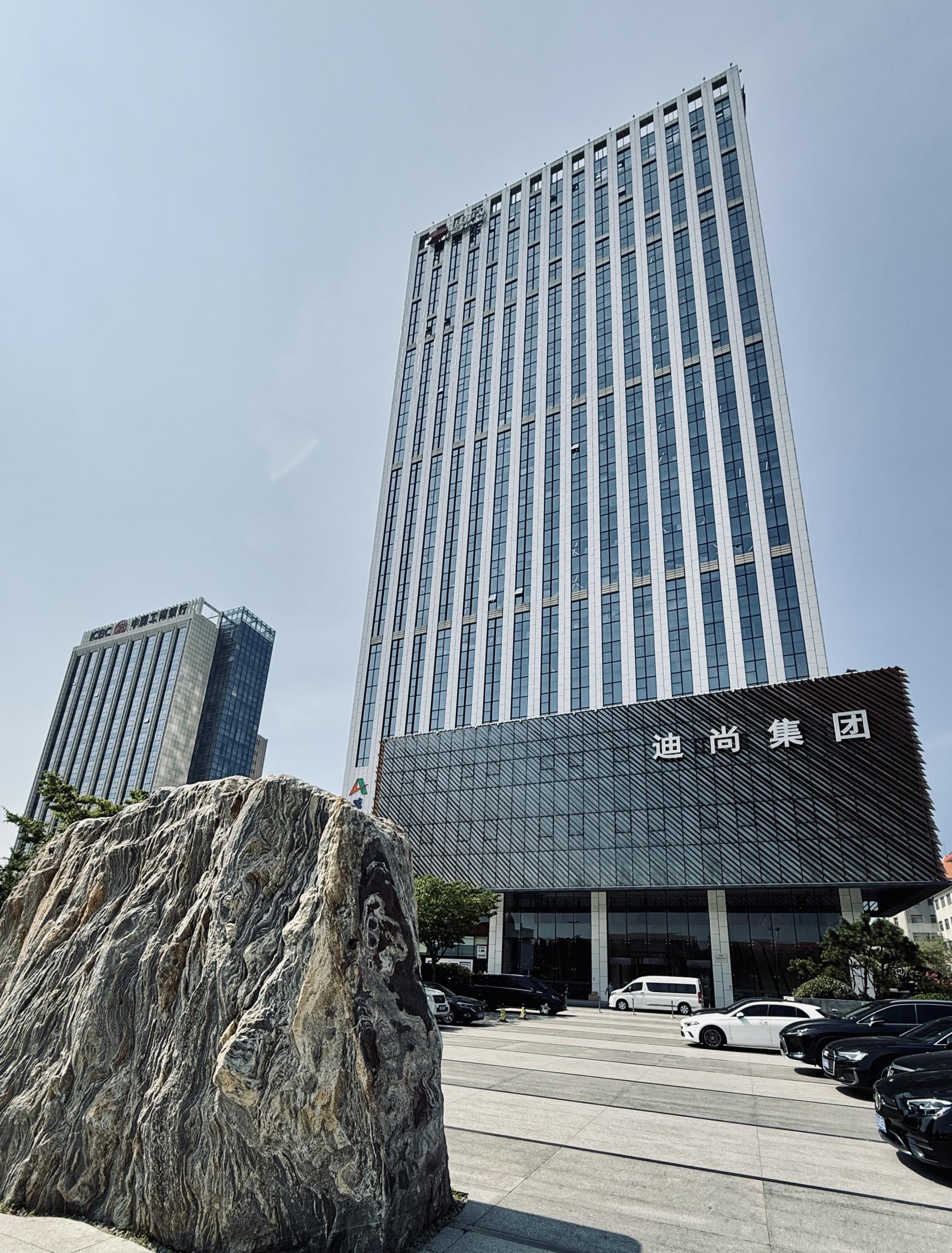
Dishan Group Headquarters
Company A formally requests samples through a work order, but in urgent cases, a single photo or existing sample is sufficient. In these cases, the actual sample arrives at the Seoul headquarters within a single day. Initial production runs typically run around 1,000 pieces, and they arrive within 15 to 25 days of ordering. If the fabric is secured, reorders can be placed within a week.
# Deshankeni Leads the Market as a Leader in Digital Manufacturing Innovation
Dishang Kenny is a subsidiary of DISHANG Group, one of China’s largest apparel companies. Launched as an independent corporation in 1996, DISHANG Kenny boasts a robust production base, organically leveraging its Weihai headquarters and other group factories in Dalian, Anhui, and elsewhere. With approximately 1,000 directly managed employees, its own factory allows it to flexibly respond to order volumes and timing.
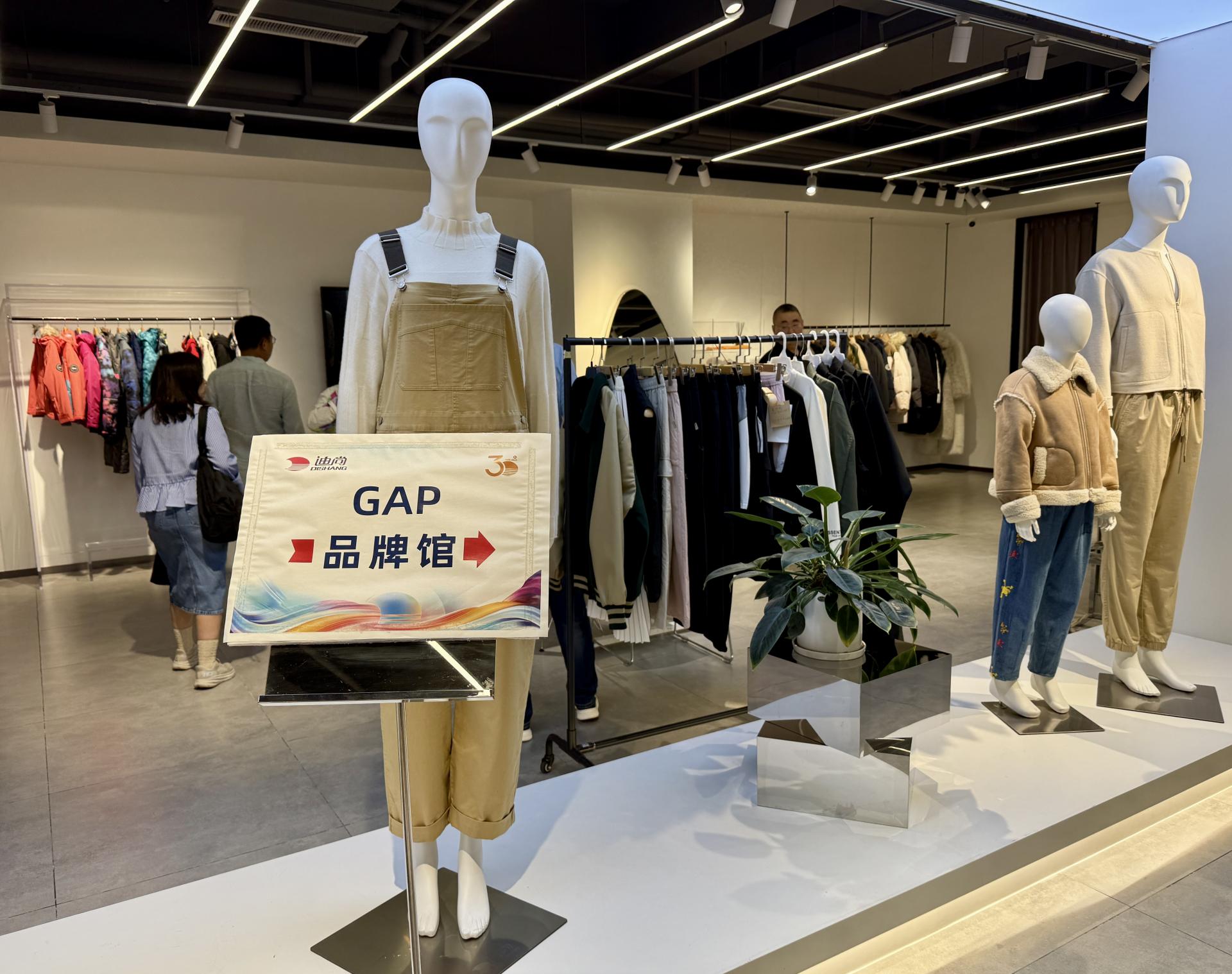
GAP product evaluation
In particular, the company has a system specialized in “responsive production” to meet rapidly changing market demands, particularly in e-commerce. Rather than relying on seasonal bulk orders, the company can produce small quantities in two- to four-week increments based on consumer feedback, reducing inventory burden. Indeed, the company actively collaborates with brands where price competitiveness is crucial, such as Morgan, CJ OnStyle PB, Top Ten, Olzen, Geozia, and Musinsa Standard.
Kevin Song, CEO of DeShankeny, explained, “We receive many orders for initial production runs of around 1,000 pieces, primarily from Japanese womenswear and sportswear brands like 23ku and Phoenix. To reduce inventory burden, we often place additional orders at two- to three-week intervals. As long as we have the fabric ready, we can deliver within a week.”
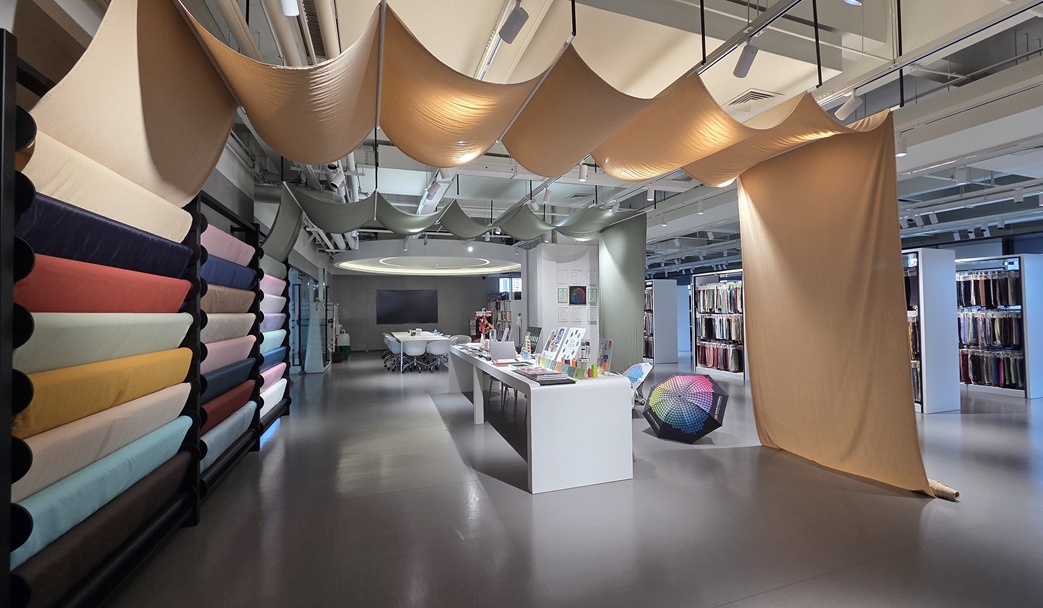
Dishang Material Library
Another strength of Dixiang is its competitive materials. The materials showroom at its Weihai headquarters boasts a library-like collection of swatches, and QR codes allow for real-time database access. Users can instantly check which brands and when a material was used, as well as its physical properties and price. This system empowers European and Japanese buyers to spend two to three days on the site, producing samples and placing orders immediately.
Digital responsiveness is also rapid. Recently, a 3D-based virtual design system has been introduced, enabling sample production and inspection without the need for physical objects. A system has already been established where Korean companies can receive samples within 24 hours, even if they request them based solely on a competitor’s product photo or magazine image.
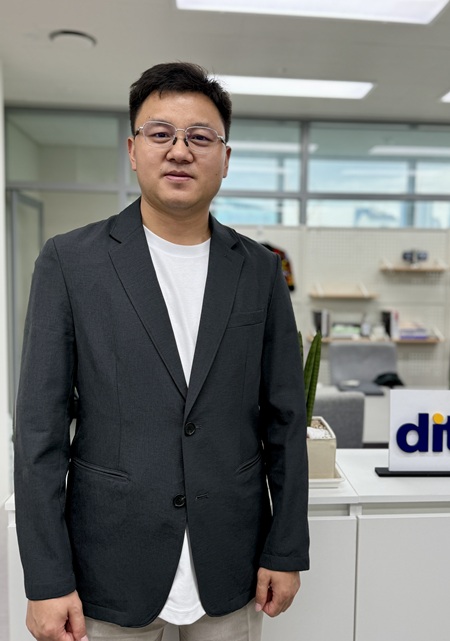
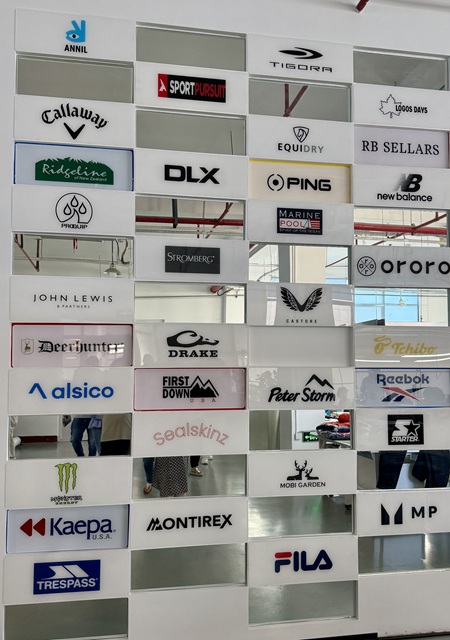
Kenny Song, CEO of Ditto (left), and Ditto’s trading brands (right) visiting Ditto’s headquarters.
# Yantai Warmjun collaborates with Korean street casual brand
Yantai Warmjun Clothing, located in Yantai, Shandong Province, collaborates with Korean streetwear brands. It produces not only major streetwear brands like Setter, Noldy, and Anti Social Social Club, but also designer brands like woven patch T-shirts. It has established a one-stop production system, from circular knits (Daimaru) to DTP processing, ensuring both production efficiency and quality.
Yantai Wormjun is particularly capable of small initial production runs of around 300 pieces and can easily handle reorders at two- to three-week intervals. The finished product, for example, costs around $3 to $4 for a short-sleeved T-shirt, making it highly competitive with domestic consumers. Through collaboration with J.Value Trading (CEO Jang Hyun-ja), the company is continuously expanding its business with domestic brands.
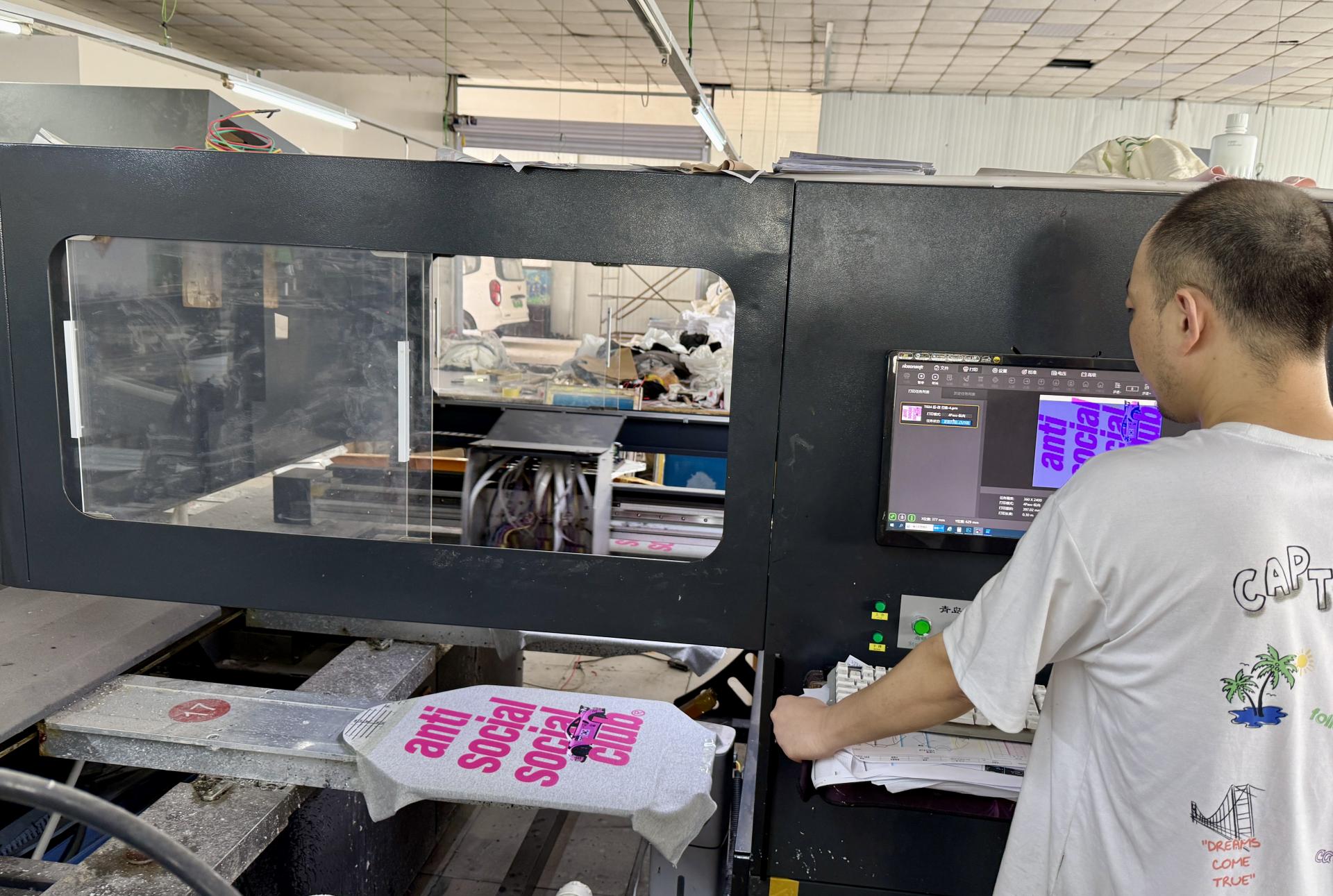
Yantai Wormjun’s one-stop production system based on DTP
CEO Jang Hyun-ja emphasized, “Yantai and Weihai are easily accessible, just an hour away from Seoul by plane, and their production facilities are highly automated. They are ideal partners for designer brands and street casual brands to quickly achieve volume growth.”
Deschankenny and Yantai Wormjun plan to attend “2025 Seoltech,” held at the DDP in Seoul on September 25th and 26th, to hold consultations with domestic fashion companies to secure orders. Deschankenny will also participate in Première Vision in Paris in September to advance into the global market. Deschankenny CEO Kevin visited Seoul in mid-July to discuss cooperation opportunities with several fashion companies, demonstrating his interest in and affection for the Korean market.
Chinese manufacturers are ushering in a new manufacturing paradigm, armed with responsive production and digital design. It’s crucial for Korean fashion companies to develop strategies to meet the changing demands of “faster, less, and more diverse.”
Editor Jeong In-gi [email protected]
